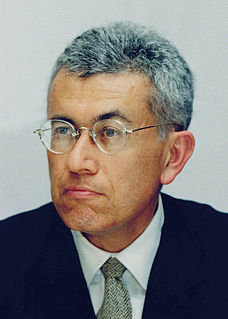A Quote by Kenneth Keniston
In the early nineteenth century, the doctrine of self-sufficiency came to apply to families as well as individuals.... The familybecame a special protected place, the repository of tender, pure, and generous feelings (embodied by the mother) and a bulwark and bastion against the raw, competitive, aggressive, and selfish world of commerce (embodied by the father).... In performing this protective task, the good family was to be as self-sufficient as the good man.
Quote Topics
Against
Aggressive
Apply
Came
Century
Commerce
Competitive
Doctrine
Early
Embodied
Families
Family
Father
Feelings
Generous
Good
Good Family
Good Man
Individuals
Man
Mother
Nineteenth Century
Performing
Place
Protected
Protective
Pure
Raw
Repository
Self
Self-Sufficient
Selfish
Selfish World
Special
Sufficiency
Sufficient
Task
Tender
Well
World
Related Quotes
The myth of the self-sufficient individual and of the self-sufficient, protected, and protective familytells us that those who need help are ultimately inadequate. And it tells us that for a family to need help--or at least to admit it publicly--is to confess failure. Similarly, to give help, however generously, is to acknowledge the inadequacy of the recipients and indirectly to condemn them, to stigmatize them, and even to weaken what impulse they have toward self-sufficiency.
The myth of self-sufficiency blinds us to the workings of other forces in family life. For families are not now, nor were they ever, the self-sufficient building blocks of society, exclusively responsible, praiseworthy, and blamable for their own destiny. They are deeply influenced by broad social and economic forces over which they have little control.
By happy fraternity amongst themselves, the embodied beings get the supreme peace. Then all this earth shines like one house. When the men, the embodied beings treat each other with equal
respect and have good brotherly feelings amongst themselves, great peace and harmony abound. Then all this earth shines like one house. The whole world shines like the one dwelling house of
the entire human family.
The raw fact is that every successful example of economic development this past century ? every case of a poor nation that worked its way up to a more or less decent, or at least dramatically better, standard of living ? has taken place via globalization, that is, by producing for the world market rather than trying for self-sufficiency.
India was the motherland of our race, and Sanskrit the mother of Europe's languages: she was the mother of our philosophy; mother, through the Arabs, of much of our mathematics; mother, through the Buddha, of the ideals embodied in Christianity; mother, through the village community, of self-government and democracy. Mother India is in many ways the mother of us all.
There is some pretty powerful self-interest in wanting a future that is not just running storm-to-storm. The argument that I make is not that we aren't competitive and selfish and greedy. We are. We're all of these things. We're complicated, competitive, greedy and nasty, and kind and generous and compassionate.































